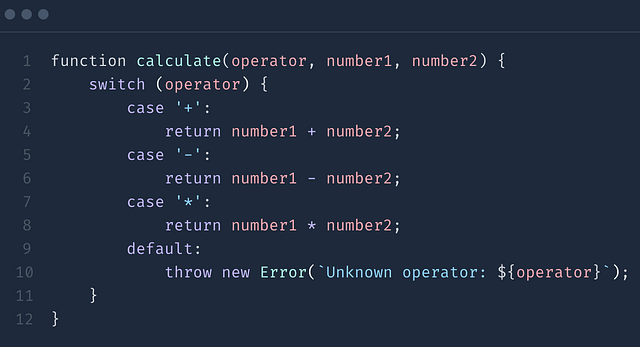Free course for beginners
JavaScript Course
Programming learning is an interesting and exciting process. The syntax of the language is the simplest and shortest path, without which it is impossible to start. This free online JavaScript course will introduce you to the basic concepts of the language. Learn the basics and write your first JS programs
Where is the JavaScript programming language used?
JavaScript is a versatile and in-demand programming language that runs in all browsers and on the server side. With it, you can master web development, learn to create interactive websites, mobile applications, and server-side services. JavaScript is easy to learn, popular in the IT industry, and its large community and numerous job opportunities can help you quickly build a career

What will you learn in the "JavaScript" course?
You will learn the basic syntax of JavaScript — a fundamental skill that will help you understand other people's code and write your own programs. After the course, you’ll be able to create simple scripts, such as a calculator
Join 74,761 students who have successfully completed courses
Start LearningLearning program
How the training is organised
Convenient format
Practice in the browser
AI assistance without limits
Try a demo lesson without signing up. Practice included
Sorting out the questions
How does the "JavaScript" course help in a programmer's career?
avaScript is a key tool for frontend developers. Knowledge of this language paves the way to a career in web development, allowing you to create dynamic websites, work with interfaces, and interact with users through the browser. Companies value specialists who know JavaScript because it is used on almost every modern website.
How is the "JavaScript" course structured?
You will learn through a beginner-friendly program that includes video lectures, theoretical materials, quizzes, and practical tasks. All exercises are automatically graded, and you will be able to write code directly in the browser. This format helps you quickly consolidate your knowledge and immediately apply it in practice.
Is a certificate provided at the end of the course?
No, a certificate is not issued upon completion of the course. However, you will gain all the necessary knowledge for a confident start in programming. You will learn to write code, work with logic, interact with web pages, and create small interactive elements for websites. These skills will serve as a solid foundation for further professional growth.
How quickly can you master JavaScript from scratch?
The speed of learning depends on your experience and the amount of time you are willing to dedicate to studying. The basics of syntax, variables, functions, and conditions can be understood within a few weeks of regular study.
What knowledge is needed before starting to study JavaScript?
It is helpful to have a basic understanding of HTML and CSS, as this will make it easier to understand how JavaScript interacts with the page structure. However, if you are a complete beginner, it won’t prevent you from starting the course. The course explains everything step by step and in simple language, with plenty of practice and examples.
Can you study JavaScript without knowing HTML and CSS?
Yes, you can start learning JavaScript without prior knowledge of HTML and CSS. However, since JavaScript is closely tied to how web pages work, it is recommended to study them simultaneously. This will help you see the results of your code and understand how different technologies interact in the browser.
Can JavaScript be used to create mobile applications?
Yes, JavaScript can be used not only for web development but also for creating mobile applications. With technologies like React Native, you can write cross-platform apps for iOS and Android using a single language. This makes JavaScript a versatile tool for both browsers and mobile platforms.
Sign up and start learning. For free. Forever